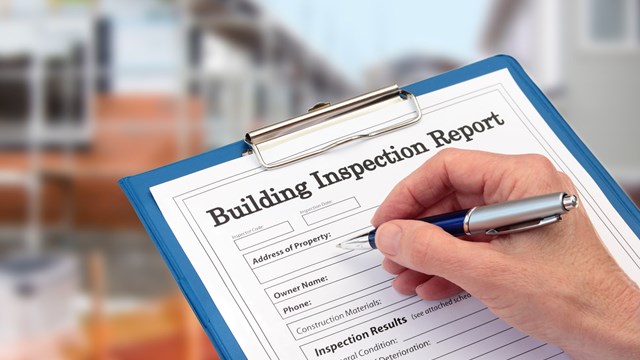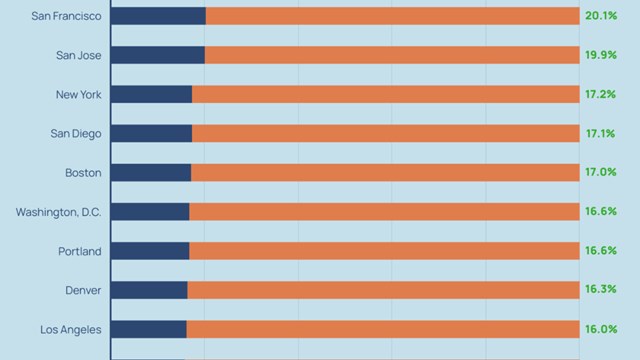Management of a condominium community is much like the democratic government of a small town. The budget process is remarkably similar, whether it’s fees or taxes being collected, and, as in local government, financial management is a transparent system based on Generally Accepted Accounting Principles, or GAAP.
Given that the majority of HOA board members are not trained financial professionals, how can an all-volunteer board manage the finances of an entire community? The answer is manifold; cooperation with trusted experts, plus familiarity with some association finance basics is a good place to start.
A Team Effort
How does a board achieve financial stability? Is it merely a combination of watching what it spends versus how much it accumulates? That's part of it, says Mary Faith Radcliffe, a principal with RCP Management Company in Princeton, but there's more to it. It's a team effort based on the input of several different entities.
“The board is the fiduciary for the association,” says Radcliffe. “As such, they need to make sure they have knowledge of the association’s finances and spend adequate time on financial planning...to insure that the association members are as protected as possible from financial disasters.
“The manager,” Radcliffe continues, “is responsible for providing the board with the best information possible so it can do its job in an efficient and professional manner. The manager should evaluate the association financials and make recommendations to the association members. This requires a manager well-trained in association financial analysis.”
“Financial stability is achieved by reviewing the HOA’s income and expenditures regularly and comparing the budgeted to actual results,” adds Karen P. Sackstein, a CPA based in Fair Lawn. “It involves setting budgets that are reasonable and attainable. Even more importantly, it involves making adjustments throughout the year by controlling discretionary expenditures to compensate for deviations from expected results. On the reserve side, you achieve stability by developing a regular funding program—preferably based on professional engineering recommendations—to segregate funds for future replacements. Those funds are not to be touched except for the purpose for which they were intended.
In addition to professional advisors, Radcliffe says that both the Community Associations Institute (CAI) and The Institute or Real Estate Management (IREM) have vast resources to help board members manage their HOA's money matters. “There are books, periodicals, short GAAP reports and DVD’s available in addition to regular educational seminars,” she says.
Sackstein agrees. “I recommend CAI's 'Best Practices Report' for Financial Operations,” she says. “It is written in layman’s terms and is relatively inexpensive.”
According to Marie D. Mirra, CPA of Mirra & Associates LLC in Hillsborough, another resource is the American Institute of Certified Public Accountants (AICPA). “The AICPA also offers an Industry & Audit Guide for Common Interest Realty Associations, and there are guides published by Practitioners Publishing Clearing House for homeowners associations.”
Budgets, Audits & More
HOAs are obviously communities first and foremost, but they are also businesses, and as such require mechanisms of oversight, such as annual budgets and an auditing process.
“All board members need to look at the money,” says Radcliffe. “As fiduciaries of the association, boards are responsible for adopting an accurate, balanced budget each year. The budget can be drafted by either the manager, the board, or even a finance committee, but the board is ultimately responsible for adopting and implementing the budget. The budget itself includes both operating and reserve funds, and is supported by various documents showing bank accounts, accounts payable, and monthly financial statements. According to Mirra, “The operating fund is generally viewed on a shorter term basis as opposed to the replacement reserve fund, which is viewed for the longer term.
The balance sheet is a statement of revenues and expenses, budget vs. actual results, unit owner delinquency reports, a schedule of accounts payable and accrued expenses owed to vendors, says Mirra. “Payable's and accrued expenses owed to vendors, outstanding amounts due on loans, etc. are also important to determine a projected net cash position for the association."
According to Radcliffe, the treasurer should receive original copies of the bank statements mailed directly from the bank or financial institutions. This is an accepted association accounting principle.The board should also take notes of any interfund balance—where one fund has borrowed money from another. An example would be that the operating fund is short of cash for a project and borrows the money from the reserve fund. While this is an acceptable practice, there needs to be a plan to pay back the reserve fund or the reserve fund will be underfunded.
Even if there are no significant questions about any of the above-mentioned items, and all the various components of the HOA's financial profile reconcile properly, accounting industry standards—and the majority of association rules—require associations to perform an annual audit as part of basic financial housekeeping. With an audit, which is the most stringent type of review, an independent CPA researches accounting and financial documents and procedures to verify the accuracy of all information, then presents an opinion regarding fairness of the financial statements, along with assurance that data has been tested.
According to Sackstein, “An audit entails an extensive examination of the association’s procedures and internal controls along with substantive and analytical testing of transactions and trends. It should be performed by a firm with a strong reputation and experience in the common interest realty association (CIRA) field."
During the audit process, the accounting firm conducts financial 'tests' to assure that the books and records of the association accurately reflect its financial state, says Radcliffe. These tests include a complete analysis of the monthly financials, matching up invoices to checks, sending confirmations forms to the bank and financial institutions used by the association, reviewing delinquent accounts and other typical procedures. During this process, the manager facilitates everything by making sure all records are available to the auditor. Although a full-fledged audit may be required by many associations’ documents, it’s not the only choice. A community’s board may choose the less-involved review or even simpler “financial statement compilation” to report its financial position.
For this review, the CPA conducting still asks questions and analyzes data collected from clients’ records, but skips the extra step of observing procedures, such as checking inventory and watching how it is counted. The very simplest type of assessment, the compilation, is considered an unaudited statement. With this type, the CPA provides assistance in the preparation of financial reports, making sure correct formats are in place, accounting principles are followed and numbers are accurate, but he or she is not responsible for verifying the information.
Challenging Times, Looking Forward
Aside from inexperience with the budgeting and auditing processes, there area number of factors that can complicate a board's job when it comes to managing their association's finances. According to Sackstein, The biggest hindrance is often the desire to keep maintenance fees low—that may ensure popularity, but not stability.”
Radcliffe agrees, seeing short-sightedness as the biggest roadblock to financial stability. "If a board develops a budget by first deciding that the maintenance fee cannot be increased more than $5.00, they are losing sight of the bigger picture," she says. "It's much better to raise fees a little more each year than to have to do a special assessment after a few years due to lack of funds. Keeping maintenance fees unrealistically low will cause undue hardship on the owners down the road."
Not all challenges are internal, however. The continuing recession has taken a heavy toll on many HOAs throughout New Jersey and around the country. “In today’s economy," says Sackstein, "there have been numerous cases of bankruptcy as well as owners abandoning properties whose value has dropped below their mortgaged amount. It is imperative that a collection policy be documented and followed to stop the bleeding, as it were. I advise all my associations, large and small to have a line item in their budget for bad debt expense. It is an absolute necessity in today’s rocky economic climate," she says.
The correct way to handle association finances is to look out toward the future, says Radcliffe. "Many projects can and should be done over several years, so planning is the key," she adds. “Developing a five-year financial plan—which can always be updated if needed—is a good way to avoid project bottlenecks. Ultimately, the board should never be able to say, 'We didn’t know' because it is their responsibility to know."
Remember that budgeting is an art as much as it is a science, says Sackstein. “The goal is be fiscally responsible by maintaining a level of maintenance fees to support the operations of the association. You will make mistakes, but take the opportunity to learn from them. Continue monitoring your budget to actual income and expenditures throughout the year and make adjustments as necessary. Consult with your property manager and independent auditor for advice. These professionals are there to help you."
Marie N. Auger is a freelance writer and a contributor to The New Jersey Cooperator. Additional reporting by David Chiu.







Leave a Comment